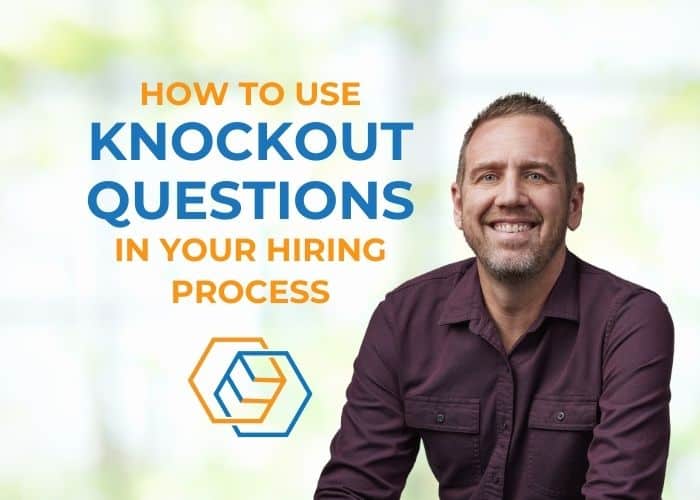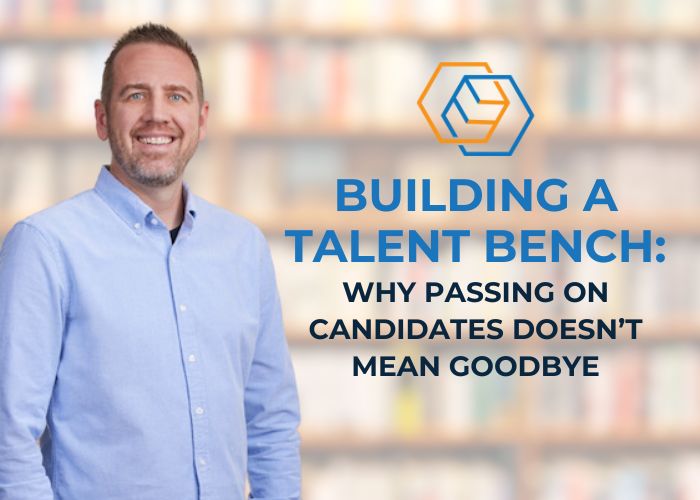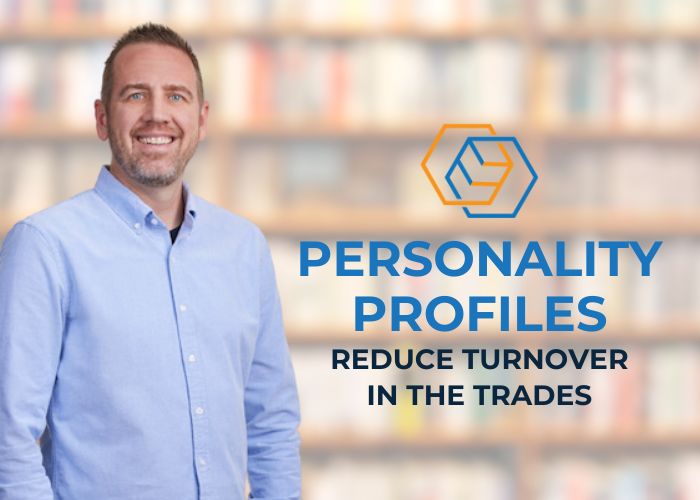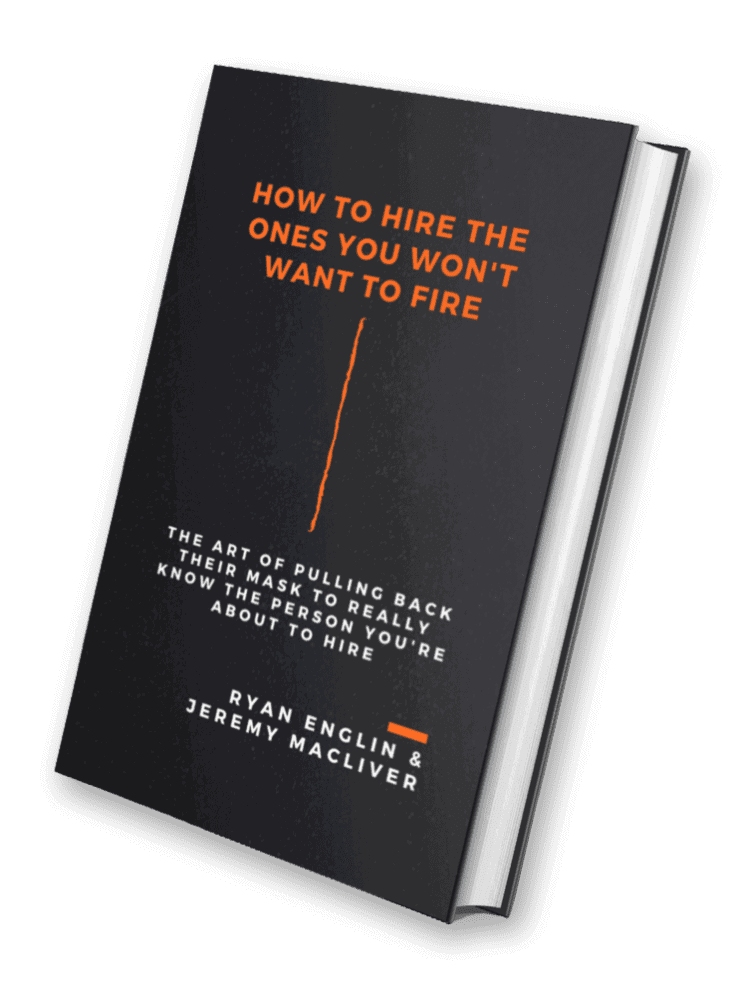Hire the Right Candidate With ONE Interview Question
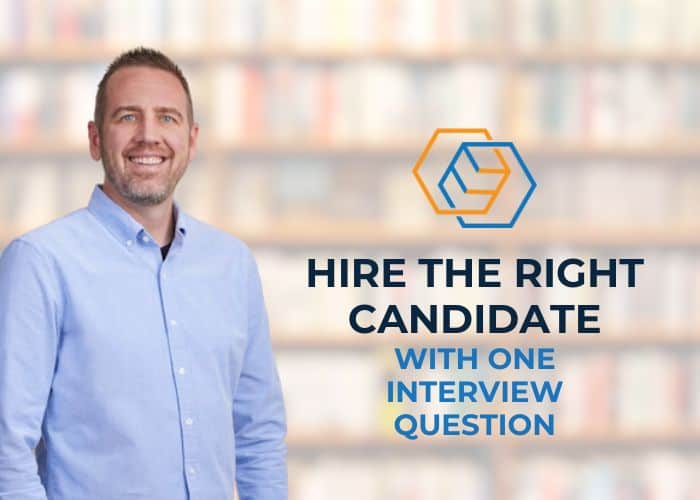
Have you ever stopped to think about how the scale of your company impacts who you hire?
Beyond just numbers on payroll, the size of your team is woven into every facet of your recruitment process. From perks, like training opportunities and accessibility to leadership, to benefits and flexibility, your workforce size shapes the way you do business.
Hire the Right Candidate
In order to hire the right candidate, you have to find someone who’s right for your company. When you identify someone who’s the right Core Fit, you know:
- How they think
- How they communicate
- Their work ethic
- Their attitudes and mindset
- They’ll fit on the team
Hiring isn’t just about skills or experience, it’s about finding someone who fits into your company’s culture and aligns with your values and vision. But how do you recognize who’s the right fit?
It comes down to one powerful question during the interview:
How do you feel about working for a company our size?
This seemingly simple question holds the key to unlocking crucial insights about a candidate’s mindset, work preferences, and potential longevity with your company. Let’s dive into why this question is so important and how it can be tailored to suit companies of all sizes.
Understanding the Importance
Regardless of the size of your workforce, if you want to hire the right candidate you have to identify who aligns with your company’s size and structure. It’s not just about job security or salary. It’s about finding people who resonate with your company’s scale, values, and way of operating.
When considering their options, job seekers think about:
- Job security
- Training opportunities
- Work dynamics
- And so much more!
Front line employees, in particular, greatly influence the output of your company, making their alignment even more critical.
Tailoring the Question for Different Company Sizes
Each company size presents distinct advantages and challenges. Tailoring the interview question allows employers to gauge candidates’ preferences and suitability more accurately.
Small Companies (Under 1,000 Employees):
According to the U.S. Small Business Association, a staggering 99.9% of American companies are classified as small businesses. Chances are, you’re part of that group! But just because you’re small, doesn’t mean you don’t have an incredible opportunity waiting for the right candidate. In fact, Millennials prefer working for small businesses.
Advantages
- Close team environment
- Direct access to leadership
- Opportunity to make a tangible impact
Disadvantages
- Uncertainty
- Lack of formal training
- Limited career growth
As a business leader, you need to know that your new hire may be looking for their next job if they feel uncertain about their future at your company. To offset the uncertainty or limited opportunities for promotion, you have to be creative with the training you offer. The people who want to work with you want to make a difference and be a part of your vision.
Medium Companies (1,000 – 4,999 Employees):
Being a part of a medium sized company may seem like the sweet spot – big enough to have great opportunities, but not so big that you’re just a cog in the machine. But just like small businesses, these companies face their own benefits and struggles.
Advantages
- Better technology and resources
- Opportunities for career advancement
- Structured environment
Disadvantages
- Limited specialization within a field
- Office politics
- Heightened market competition
As a business leader, you need to know that as your team faces more pressure and higher job demands, they’ll be more likely to burnout. To offset this, regularly connect with your team to determine if they have a reasonable and sustainable workload. Show your team they’re a valued part of your organization.
Large Companies (5,000+ Employees):
As you’ve probably guessed, there are advantages and disadvantages to working for a large company too.
Advantages
- Abundant resources
- Diverse career opportunities
- Stable environment
Disadvantages
- Limited individual impact
- Increased bureaucracy
- High turnover
As a business leader, you need to know that your new hire probably works here because it’s all about them. For example, Amazon isn’t selling new hires on their vision of global domination – job seekers go there for stability and for the experience of working for a well-recognized company.
At the end of the day, the size of the company matters less than the candidate’s preference toward working somewhere with those unique benefits and challenges. It’s your job to figure out if your company is the right fit for the job seeker before you extend an offer.
Unveiling Candidate Preferences
Hopefully, you’re still thinking about that powerful question that will allow you to hire the right candidate:
How do you feel about working for a company our size?
This initial question serves as a gateway to further exploration. Follow up questions tailored to your company’s size will show the candidate’s true preferences and compatibility, even if they never considered it prior to the interview.
The following are just examples to help guide your interview. You need to tailor these questions to work for your company. Once you’ve asked the question, here are some follow up inquiries to keep the conversation going.
Do you prefer:
- A team with a family dynamic (small company), a balanced organizational structure (medium company), or a company with an org chart that shows where everyone falls in the hierarchy (large company)?
- Broad responsibilities (small) or specific duties (medium and large)?
- Hands-on training (small) or formal instruction (medium and large)?
- Making impactful decisions (small) or adhering to established procedures (medium and large)?
- Close, personal relationships with your team (small) or a broad, diverse network (medium and large)?
- A variety of experiences (small) or specialized responsibilities (medium and large)?
- Problem solving as issues arise (small) or standard operating procedures to guide you through the situation (medium and large)?
- A career that encourages innovation and risk taking (small), opportunities to work with new technology (medium), or a place that values proven methods and minimizes risks (large)?
Note: Words in parentheses are for your reference – don’t say them during the interview. They reveal a candidate’s true preference.
It’s okay if a candidate’s answer falls within multiple categories. Make notes while they’re talking if they really emphasized an answer or if they were less decisive about some of the options. This will help you determine what’s most important to them and if your company is a good fit.
For example, if you have extremely limited resources and aren’t able to offer paid training, it’s better to know if that’s a deal breaker for your candidate before you make an offer. Similarly, if you expect your new hire to jump in and make suggestions about the way you do business but they like a job with existing procedures, you want to make that known before hiring them.
Unlock the Power of a Single Question
A comprehensive interview requires more than a single question; however, the power of this question should not be underestimated. It serves as a litmus test, guiding you to hire the right candidate who possesses the skills and experience required as well as resonates with your company’s size, culture, and values.
As you navigate the complexities of hiring in a competitive landscape, it’s essential to recognize the potential of leveraging your company’s size.
At Core Matters, we help small businesses adopt strategies that mirror those of larger companies, especially when it comes to hiring and retention. We specialize in equipping you with the tools and insights you need to showcase what sets your company apart, whether it’s unique training or mentorship programs, opportunities for growth, or anything else.
By highlighting what sets you apart, you not only attract top tier talent, but also foster an environment where employees thrive and contribute to the long term vision.
